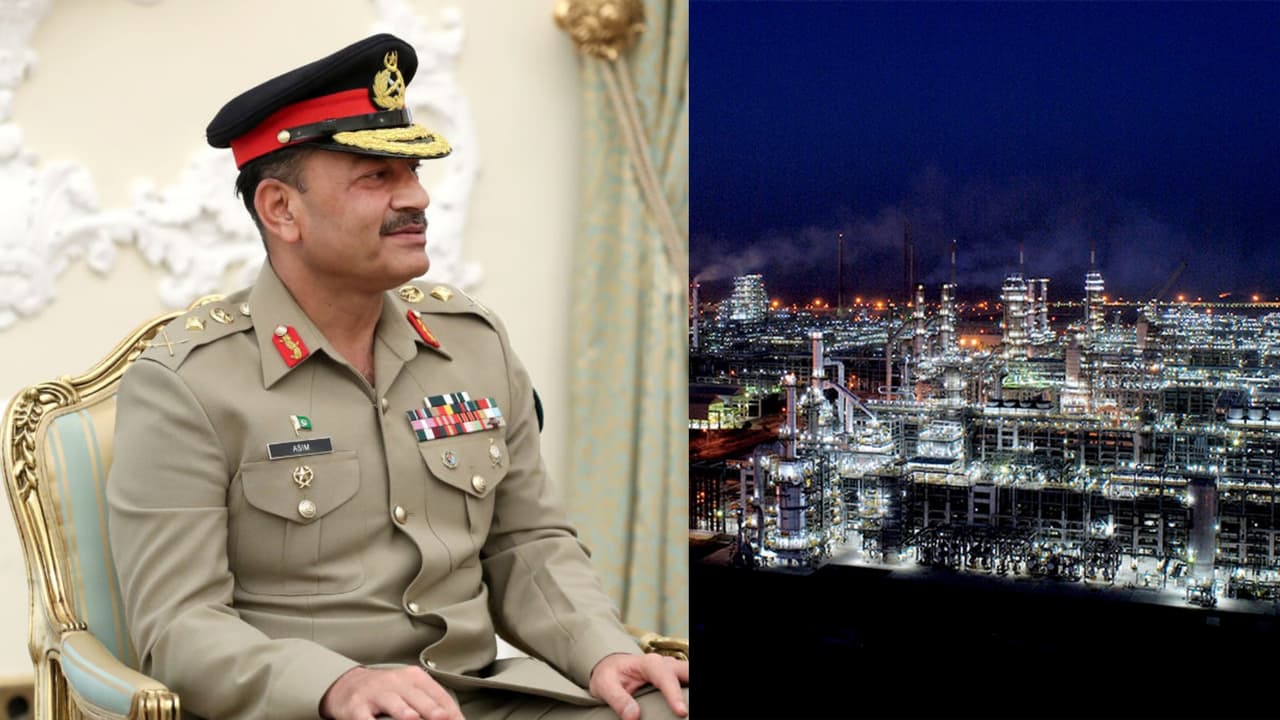Pakistan Army Chief Asim Munir’s reckless threats to target India’s refinery, dams, and use nuclear weapons expose the real instability in South Asia.
In a closed-door dinner thousands of miles away from South Asia, Pakistan’s most powerful man chose to drop verbal bombs. Field Marshal Asim Munir, the country’s Army Chief, stood before members of the Pakistani diaspora in Tampa, Florida, and reportedly issued threats that have shocked observers and reinforced fears about the militarised mindset driving Pakistan’s policy towards India.
Naming Jamnagar: A Threat Like Never Before
It was not a vague warning. It was not a generic military boast. Munir did something no Pakistani military leader has done before — he named a specific Indian economic asset as a target.
According to The Times of India, he singled out Mukesh Ambani’s Reliance Industries Ltd refinery in Jamnagar, Gujarat — the largest single-site refining complex in the world. This wasn’t just casual mention. Munir boasted about authorising a social media post during a recent India-Pakistan flare-up that combined a Quranic verse with a photograph of Ambani:
“To show them what we will do the next time,” he reportedly told attendees.
The intent was unmistakable — to send a clear signal that Pakistan’s military is willing to go after India’s most vital economic infrastructure.
Weaponising Water: Threats to India’s Dams
As if targeting a refinery wasn’t enough, Munir then shifted to another critical lifeline: India’s dams. In remarks clearly aimed at the suspension of the Indus Waters Treaty, he issued an unambiguous warning:
“We will wait for India to build a dam, and when it does so, phir 10 missile sey faarigh kar dengey [we will destroy it with 10 missiles].”
It was a blatant threat to civilian infrastructure — an act that international law would define as a war crime. But such norms have rarely restrained Pakistan’s military leadership, which has a history of using water issues as a pressure tactic against India.
A Private Dinner, Publicly Dangerous Words
This was no casual chit-chat over dinner. The event, hosted by Pakistan’s honorary consul in Tampa, was attended by about 120 diaspora members. Phones and recording devices were banned, suggesting Munir’s team knew his comments might not go down well if leaked.
Yet details emerged, painting a picture of a general who was in the US ostensibly to attend the retirement ceremony of General Michael Kurilla, CENTCOM’s outgoing commander. Kurilla, in contrast, had called Pakistan a “phenomenal partner” in counterterrorism — words that now seem at odds with the aggressive posture Munir displayed that very week.
Bollywood Rhetoric and Populist Nationalism
Munir also reportedly laced his speech with cinematic flair, appealing to sentimentality rather than strategy.
“Kisi ki maa kaali ho sakti hai, aur kisi ki dharti-maa kaali ho sakti hai, par maa maa hoti hai [someone’s mother might be dark-skinned, and the earth of someone’s motherland might be dark, but a mother is a mother],” he told the audience, urging overseas Pakistanis to support the country.
He also claimed that Pakistan’s foundation on the Kalimah ensured it would be blessed with resources like rare earth metals and hydrocarbons — a familiar nationalist refrain in a country where resource wealth is often invoked as destiny, despite decades of economic mismanagement.
A Self-Proclaimed Master of Diplomacy
Shifting gears, Munir reportedly attempted to project Pakistan as a diplomatic balancing act between rival powers. He pointed to recent tensions between India and the US, suggesting Pakistan had the “unique ability” to manage relationships on all sides, even going so far as to boast about taking “masterclasses” in diplomacy.
In a curious twist, he held up the nomination of US President Donald Trump for the Nobel Prize as an example of Pakistan’s approach to “appreciating those who do good” — a remark that left many wondering what this had to do with threatening India’s economic and water security.
Munir’s Tampa remarks were not just bluster for a friendly crowd. They were part of a pattern that underscores the Pakistani military’s core mindset: hostility towards India as the organising principle of its strategy, coupled with a willingness to target civilian infrastructure and make provocative statements from foreign soil.
By naming the Jamnagar refinery, he crossed a line from generalised threats to specific targeting — a signal that such assets are fair game in Pakistan’s war planning. And by threatening dams, he demonstrated a readiness to hit where it would hurt ordinary people the most.
